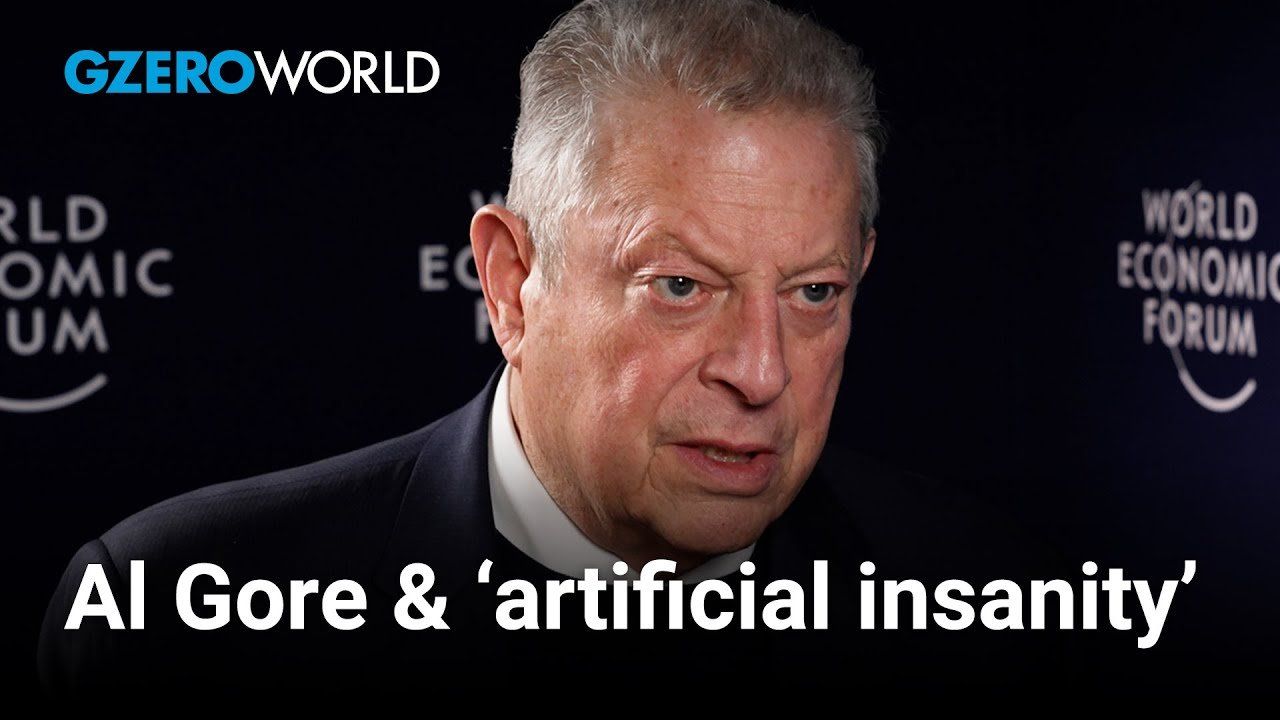GZERO World Clips
Al Gore: "Artificial insanity" threatens democracy

Al Gore: "Artificial insanity" threatens democracy | GZERO World with Ian Bremmer

It is not a partisan statement to acknowledge that the future of American democracy is very much an open question. In 2020, we witnessed the first non-peaceful transition of power from one US presidential administration to another for the first time in modern history. And if past is prelude, 2024 could be a good deal worse. So what accounts for the imperiled state of democracy? Misinformation, coupled with technology, is a big part, says former vice president and Nobel laureate Al Gore in an upcoming episode of GZERO World.
Ian Bremmer caught up with Gore on the sidelines of the 2024 World Economic Forum in Davos, Switzerland to talk about the upcoming US election and, as you might expect, the existential threats posed by climate change. In this clip, Gore talks about today's witches' brew of new technologies, social media, and a lack of shared trust amongst Americans.
"These algorithms that suck people down proverbial rabbit holes, they're more like the pitcher plants with slippery sides and at the bottom of the rabbit hole, that's where the echo chamber is. And people who dwell long enough in the echo chamber become vulnerable to a new kind of AI. Not artificial intelligence, but artificial insanity."
Prime Minister Narendra Modi, with President of the European Council António Luís Santos da Costa, and President of the European Commission Ursula von der Leyen, at Hyderabad House, in New Delhi, India, on Jan. 27, 2026.
On Tuesday, the world’s largest single market and the world’s most populous country cinched a deal that will slash or reduce tariffs on the vast majority of the products they trade.
Canadian Prime Minister Mark Carney has repeatedly tussled with US President Donald Trump, whereas Mexican President Claudia Sheinbaum has tried to placate him. The discrepancy raises questions about the best way to approach the US leader.
10,000: The number of Hamas officers that the militant group reportedly wants to incorporate into the US-backed Palestinian administration for Gaza, in the form of a police force.
Walmart is investing $350 billion in US manufacturing. Over two-thirds of the products Walmart buys are made, grown, or assembled in America, like healthy dried fruit from The Ugly Co. The sustainable fruit is sourced directly from fourth-generation farmers in Farmersville, California, and delivered to your neighborhood Walmart shelves. Discover how Walmart's investment is supporting communities and fueling jobs across the nation.